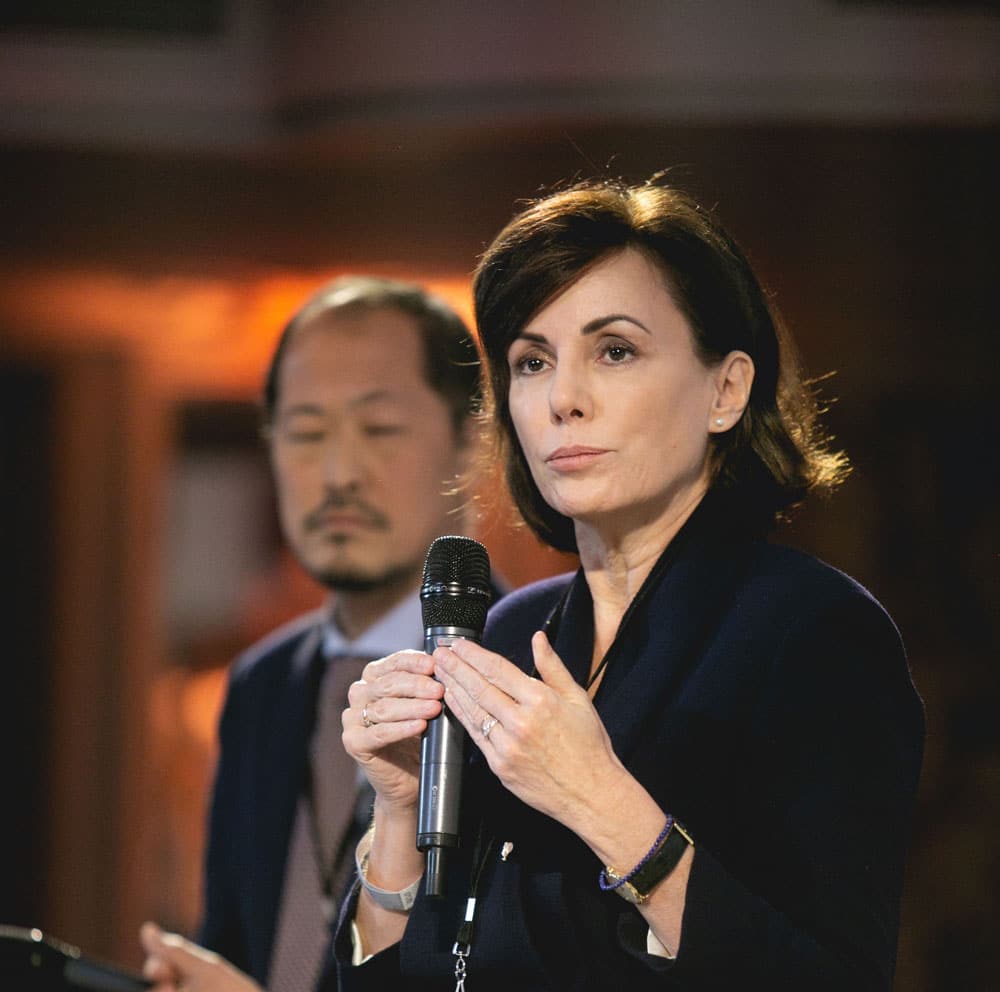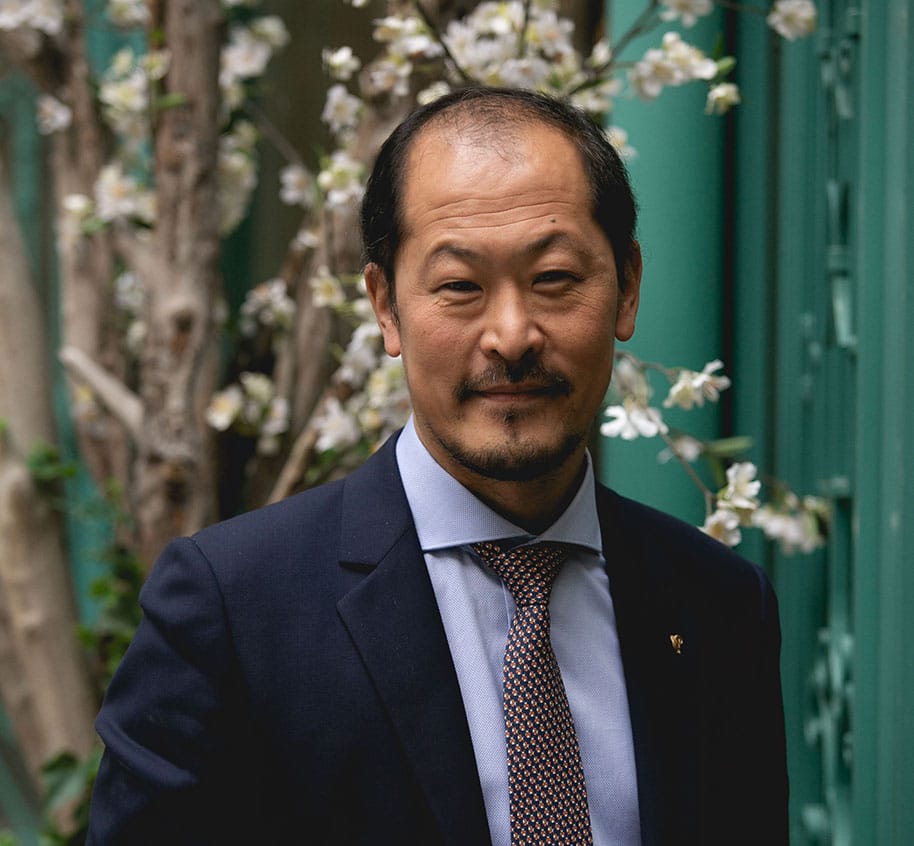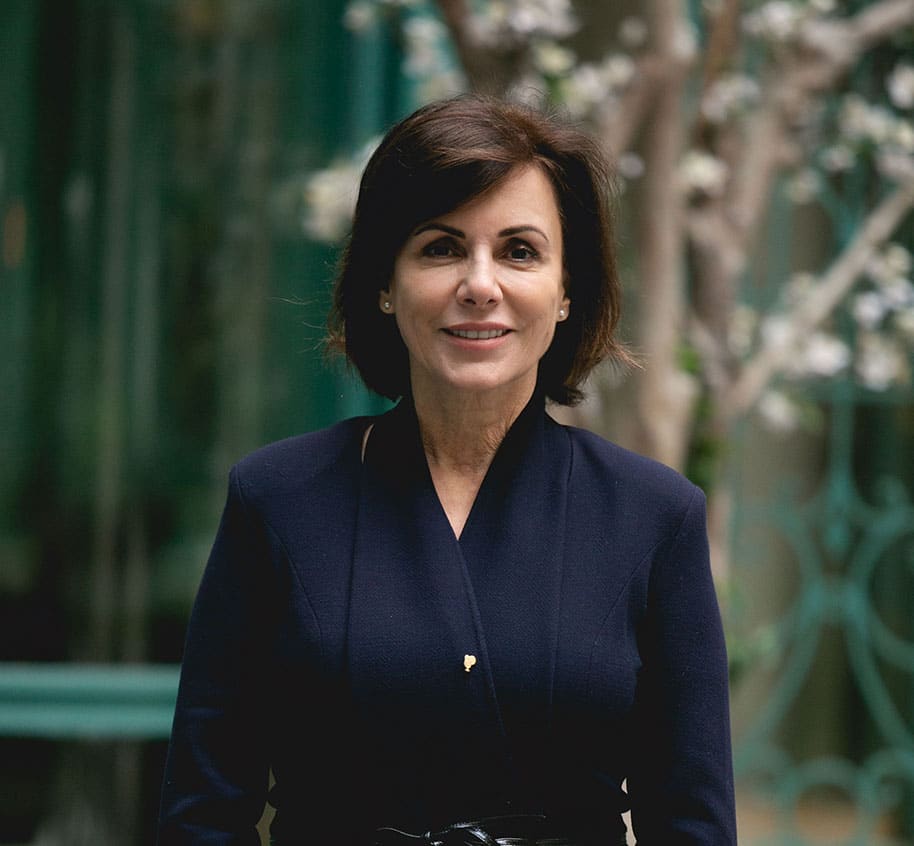ETHICAL CHARTER
LES GRANDES TABLES DU MONDE
Sylvie Buhagiar and Sang-Hoon Degeimbre:
“With this charter, Les Grandes Tables du Monde positions itself as an actor of change with strong ethics”
Four months of work to clearly outline the meaningful commitments and values of social responsibility that drive the Association: not only respect for the environment and raw materials, but also friendship, elegance and transmission.
Focus on the Association’s ethical charter, which was drawn up by Sylvie Buhagiar and Sang-Hoon Degeimbre.
How did the idea of creating the ethical charter come about?
Sang-Hoon Degeimbre: The question of ethics in the restaurant business kept coming up during our Board meetings. It was Sylvie Buhagiar who finally put forward the idea of creating a charter. As an Association, we want to have a genuine impact on the restaurant world and be the bearer of strong values. With this charter, Les Grandes Tables du Monde positions itself as an actor of change with strong ethics.
Sylvie Buhagiar: The matter of ethics was something very close to our hearts. Under the guidance of David Sinapian, we both set about researching to create our own ethical charter. We worked methodically and interviewed all Board members of the Association as well as other major figures in the world of gastronomy to understand what they consider to be the key values – those of the past, present and future – that govern Les Grandes Tables du Monde. We had lists of values that we prioritised in order to draw up the charter in two parts: the first section featuring common values for the restaurant industry, and the second outlining the specific values of Les Grandes Tables du Monde. After 5 months of hard work, the charter was adopted by the Board of Directors, and then presented at the General Assembly on November 22nd, 2021.

Do you think that the health crisis has affected ethical considerations in the restaurant world?
Sang-Hoon Degeimbre: The health crisis has only exacerbated and brought to the surface existing ethical questions. Our charter is certainly not intended to be a mere collection of values, but rather to start a conversation. I think we can influence some of our peers’ behaviour towards their teams.
Sylvie Buhagiar: I believe the health crisis has only reinforced our values. During the long months of lockdown, we were able to see our convictions at work, during our working sessions with the Board of Directors and our discussions with our members around the world: it was that mutual support, friendship and listening of members that helped us pull through in hope of better days to come.
How was the charter received by members of the Association?
Sylvie Buhagiar: It was warmly received by members. We wanted a concise charter and, above all, for everyone to identify with its values and draw inspiration from them in their daily lives.
Sang-Hoon Degeimbre: Chefs and restaurateurs quickly understood the benefit of such a concise and easy-to-understand charter: the values can be quickly retained and used to inspire teams on a daily basis.
What are the core values of the ethical charter, in your opinion?
Sylvie Buhagiar: If I had to pick one, I would choose self-fulfilment, well-being and inclusion.
Sang-Hoon Degeimbre: Indeed, this charter puts human value above all else: respect for individuals is at the heart of our priorities. This might seem obvious, but if we don’t talk about it, this topic can be cast aside. So yes, human value is absolutely fundamental.
How will the members of the Association bring this charter to life in their establishments?
Sang-Hoon Degeimbre: We presented the CSR charter at our General Assembly during the Paris Congress in November 2021. At the time, we realised that we had merely transcribed what our members were already thinking. Our ethical charter should be a blueprint for our members’ teams. And if everyone could draw inspiration from it and turn it into actual guidelines, that would be amazing.
Sylvie Buhagiar: Our charter is not a law, nor a regulation, we won’t ask members to strictly abide to it. These are recommendations, values that we hold dear, that we live by and share on a daily basis. And this is precisely how our chefs and restaurateurs have received it.


What are the ethical issues that you consider worthy of deeper reflection?
Sylvie Buhagiar: I am thinking in particular of the place of women, which must be respected and valued. To contribute at our level, we have launched a series of interviews with women working in our member establishments, titled Prominent Women. These are tales of incredible journeys, inspiring examples of perseverance and willpower, which I hope inspire many to pursue a career in our industry.
Sang-Hoon Degeimbre: Team and people management is front and centre today: how can we manage our employees and their sensitivities in a sector where everything is so prescriptive? How can we persuade them that our choices are indeed their choices, without manipulating them? The balance between well-being and freedom of the teams, and the authority of the restaurateur is key, but very fragile. We must listen to our teams and encourage them to speak out while maintaining the rigour and inspiring role of business leaders. We are tightrope walkers, constantly on the edge!

